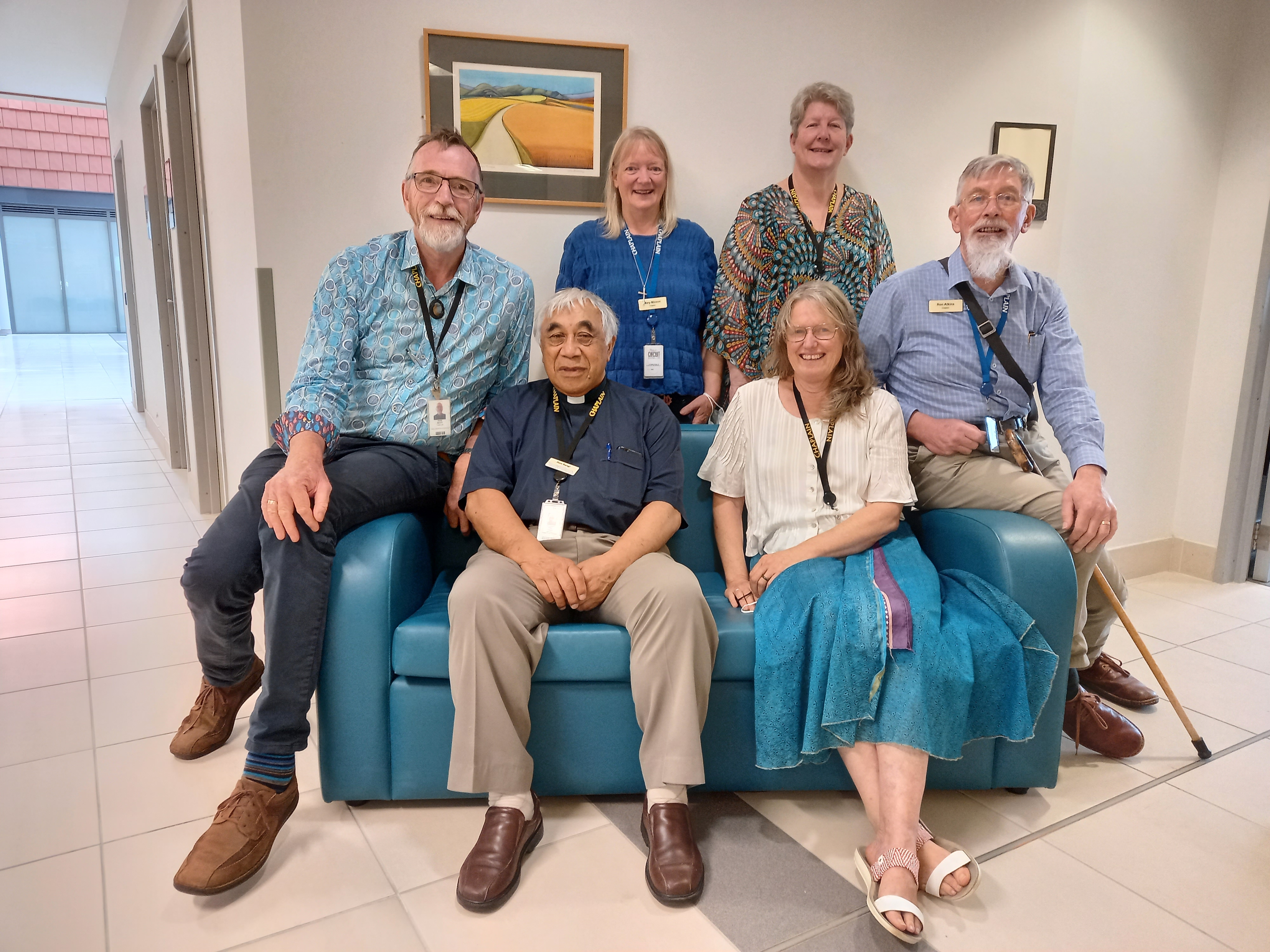Our District has three Chaplaincy Teams based at Wellington Regional (WRH), Kenepuru, and Hutt Valley Hospitals who provide a range of pastoral care for patients, whānau and staff alike.
This includes:
- Listening
- Support and Encouragement
- Prayer
- Communion
- Room Blessings
- Helping explore ways of coping
- Spending time with you
- Celebrating religious rituals
- Seeking meaning in life.
 While recognised as predominately Christian, the Chaplaincy Teams have a saying that goes, “For people of all faiths and none”.
While recognised as predominately Christian, the Chaplaincy Teams have a saying that goes, “For people of all faiths and none”.
There is a total respect of all people’s beliefs and it is their mission to help by providing the resources they need. Some of the team shared more about their role, and their love for supporting people across our hospitals.
Hutt Hospital Chaplain, Kathryn Van Woerkom: “Working in Chaplaincy is a real privilege. To work with people when they’re vulnerable or at the end of their life, and support them is a real privilege. There are also people who may not have anyone to be with them so we can be that person that gives them that company. That is why this is all meaningful to me, giving something back to people for the goodness God has given to me.”
WRH Chaplain, Ross Scott: “Most people that come into hospital are facing some sort of crisis, change or unpredictable situation which can be very tough for them. What chaplaincy can offer is to listen non-judgementally and to be present. Sometimes being present with a person helps that person access their own Faith resources and make sense of what is going on. This is what I experienced years ago when I was a patient and it motivates me now.”
Hutt Hospital Chaplain Tale Hakeagaiki: “For me personally, it’s a calling; to serve other people in our community. It doesn’t matter what their faith is or their background, we have a lot to offer and share to people who need it. There is the hospital providing the medical care and we’re providing the spiritual side of things, which includes comfort and care. It’s also important for us to be there with staff. We spend a lot of time with staff and assist them in whatever they need.”
WRH Chaplain, Mary Minson: “People are wonderful and interesting to meet in their varied situations. To do so is a rare privilege. Listening to where they’re at, to hear something of their life’s journey, including the difficult and hard moments, and the spin off as to what life is about, is the place we stand, with them.”
Hutt Hospital Chaplain Rey Enriquez: “I just wanted to give back to the community. We want to serve them and enhance the spirituality side of things. Also, giving back to the staff is important to me. We organise staff prayer meetings for those who just need a little help so being a part of that is amazing. Hospital Chaplaincy is about supporting everyone from birth to death and anything in between.”
WRH Chaplain Ron Atkins: “For me, it’s about taking time to hear patients grief of what they’re losing; the loss of autonomy, the loss of privacy, and we can listen. We can’t change the outcome, but we can honour their grief or loss. With staff often a place to talk about the stresses of what they’re facing. Just a safe space outside the channels of responsibility. Patients and staff have told me that I’m a constant in world of change.”
Contacting the Chaplains
You can get in touch with the Chaplains by calling your hospital mainline and ask to be put through to the Chaplaincy Service.
Anyone needing urgent support, such as a death or before going into surgery, can talk to an on-call Chaplain by calling your hospital’s operator - just remember to say which hospital you are in.
Hutt Valley and WRH have Chapels, along with a Muslim Prayer Room in WRH, while Kenepuru has two quiet rooms, where people can worship, reflect or pray. They are open 24/7 and are open to all people.
All three Chaplaincy Teams follow the guidelines of the Interchurch Council for Hospital Chaplaincy.

